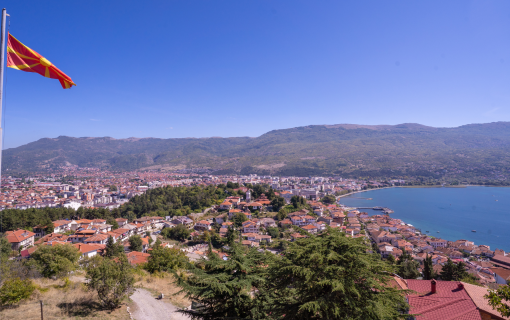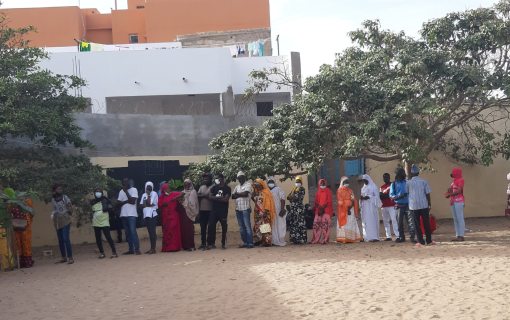Public Funding Solutions for Political Parties in Muslim-Majority Societies
Executive Summary
Political finance is inherently important to the quality of democracy. The financial resources available to parties and candidates, the distribution of those resources, and the ways in which they are collected and spent can have a decisive impact on the effectiveness of political actors, the nature of electoral competition, and ultimately, the legitimacy of elections and democratic institutions. Despite the growing corpus of comparative knowledge in the field of democratization, political finance has long remained a relatively under-studied and under-theorized topic. The topic of money in politics is a politically sensitive issue the world over, and the MENA region is no exception. Further, there remains a significant knowledge gap about political finance practices in the countries of the Middle East and North Africa. Limited access to information in many countries in the region presents a significant challenge to research and data collection. This publication is the first study to cover public funding systems in this region and is a foundation on which to continue building a better understanding.
Public Funding Solutions for Political Parties in Muslim-majority Countries of the Middle East and North Africa thus seeks to explore, for the first time, the role of political finance in democracy development in these countries. The experiences of newly established and consolidating democracies in other regions provide a frame of reference for four carefully selected case studies in the Middle East and North Africa: Egypt, Lebanon, Morocco, and Turkey. These countries were chosen to provide examples that differ in terms of geographic spread, size, and experience with public funding. Each case identifies the impact of the current political and electoral system on political competition and determines whether the socio-political conditions exist for the adoption or improvement of a viable public funding system. Moreover, each case maps out the opportunities for and constraints on designing such a system, and gauges the likely impact on enhancing political competition in the country, particularly with respect to resource-disadvantaged secular parties.
The trend towards the use of public subsidies has generally been supported by opposition parties and quietly opposed by parties in power and those with access to administrative resources. Yet in many newly established democracies, public funding of parties and candidates has been the only option to diversify sources of funding and decrease plutocratic influences in politics. The findings show that, when well designed and carefully adapted to the existing institutional framework, public funding systems can contribute in crucial ways to the strengthening of democratic politics. This study found that the main motivation behind efforts to introduce public funding of political parties should not be to curb corruption, but rather to promote fair competition between regime and opposition political groups, and to nurture emerging parties. However, in the majority of cases introducing even the most generous public subsidies for political parties does not eliminate major obstacles to further democratization. Although the study illustrates that public funding of political parties is not a recent development in some Muslim-majority societies, the extent to which these subsidies have helped to make political parties more effective and the extent to which they have allowed elections to become more competitive is marginal. The study findings also suggest that increasing public funding on its own might not prevent the further decline of secular parties and that the instrument of public funding can only be useful as a part of broader democratic reforms.
As such, public funding should be considered a useful and effective instrument in the toolbox of political reformers in the countries of the Middle East and North Africa. It can play a role in bringing about a cleaner and more transparent brand of politics. Equally crucial is the prospect that public funding, particularly when disbursed regularly and not just during the electoral season, can have a decisive effect on the level of institutionalization of political parties. By analyzing the laws, reports and data from various primary and secondary sources, including press accounts and interviews with stakeholders, this publication identifies the strengths and weaknesses of public financing programs and makes specific recommendations on how to improve existing or introduce new funding mechanisms.
Among its findings, the report identifies the following concrete ways to address key challenges in creating an effective system of political financing:
- Policy makers, civil society groups and others involved in political party development and electoral and democratization debates require more information regarding international standards and best practices in political party financing and developments in emerging transitional democracies. Such information would lead to more country specific research and better policy recommendations.
- Each country should find its own equilibrium of public versus private funding, relevant to its own stage of democratization and economic development. An appropriate formula for allocation of direct and indirect public subsidies to political parties should be developed. All mainstream parties should benefit from public funds rather than just the ruling party.
- In order to receive state subsidies parties should be required to adhere to certain conditions. These might include a greater level of transparency, financial and otherwise, as well as improved internal democracy, including increased public participation. In all cases full financial disclosure is needed of all public funds (direct and indirect) and private funds provided to political parties, individual candidates and parliamentarians. The state should not tolerate vote buying or the abuse of state resources by political parties receiving public funding.
- An independent political finance regulatory body should be relied upon to audit political and electoral financial accounts. Public funds should be disbursed in an objective and impartial way without political interference.
- This publication seeks to address how to design public funding systems that support cleaner and more competitive elections and robust party systems in Muslim-majority societies. It concludes that political finance reforms in these countries should be approached with modest expectations as they are a particularly problematic aspect of the democratization process.









